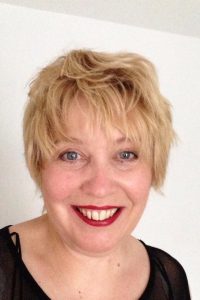How are care homes coping without access to care professionals to help with essential care equipment assessments during lockdown?
With care professionals unable to visit care homes at the moment due to lockdown, to undertake assessments and make recommendations to improve comfort, safety, independence and mobility of residents, Hcsuk are pleased to be able to add to our already extensive range of products and services to care homes, by offering you a remote equipment assessment service via our latest recruit to the business, Jan Kelly, who is a Level 2 qualified SADL Trusted Assessor with many years’ experience working in the care industry, with well respected companies including Medequip.
I asked Jan, in her vast experience, how this service can help care homes during this challenging time.
‘By utilising my skills as a qualified Trusted Assessor to conduct remote assessments for equipment and aids to daily living in care home environments, I am able to help care providers: 
- Reduce unplanned hospital admissions,
- Reduce the current wait time for an OT visit,
- Improve the quality of care and experience for care home residents and...
- Increase staff confidence levels and assessment skills for nurses in care home settings.’
In normal circumstances, an assessment would require a care professional to attend in person and interact with a resident and staff both verbally and physically. In the absence of this being achievable, currently, we are able to assist with remote assessments to get as much information as possible to make an educated decision that leads to prompt care and the best outcome for the resident.
Jan went on to say:
‘I am able to assess residents remotely, working in conjunction with the resident and care home staff communicating in real time between ourselves .
Although such consultations can be done by telephone, in many cases, video provides additional visual cues and therapeutic presence, so by using technology, including Zoom or WhatsApp we can work together to achieve improved resident outcomes.’
Being able to see residents in their environment is paramount, as it provides additional information to what is being communicated verbally and can give me clues which may not be verbalised by the resident or noticed by the care staff.
Regardless of the ability to obtain a visual assessment, verbalisation and talking to the resident and carers can provide additional valuable information. Having both verbal and visual abilities exponentially increases information, but this is not always feasible.
We are hearing from care providers that in the current crisis there is a lack of availability of care professionals to undertake assessments even when residents conditions are deteriorating. This can lead to avoidable unplanned hospital admissions which can be confusing and unsettling for residents who are often frail and potentially lead to further deterioration in their condition.
By undertaking remote assessments we hope to reduce unplanned admissions, reduce the current wait time for a professional’s visit, improve the quality of care and experience for the care home resident and increase staff confidence levels and assessment skills for nurses in the care home setting.

If Jan can help you with any remote assessments or queries or challenges you may be having with seating, moving and handling, pressure area care or any other area to help improve the safety, comfort, and independence of any of your residents at this time, then please don’t hesitate to contact Jan on 07968 994660 or email her at jan@hcsuk.co.uk



